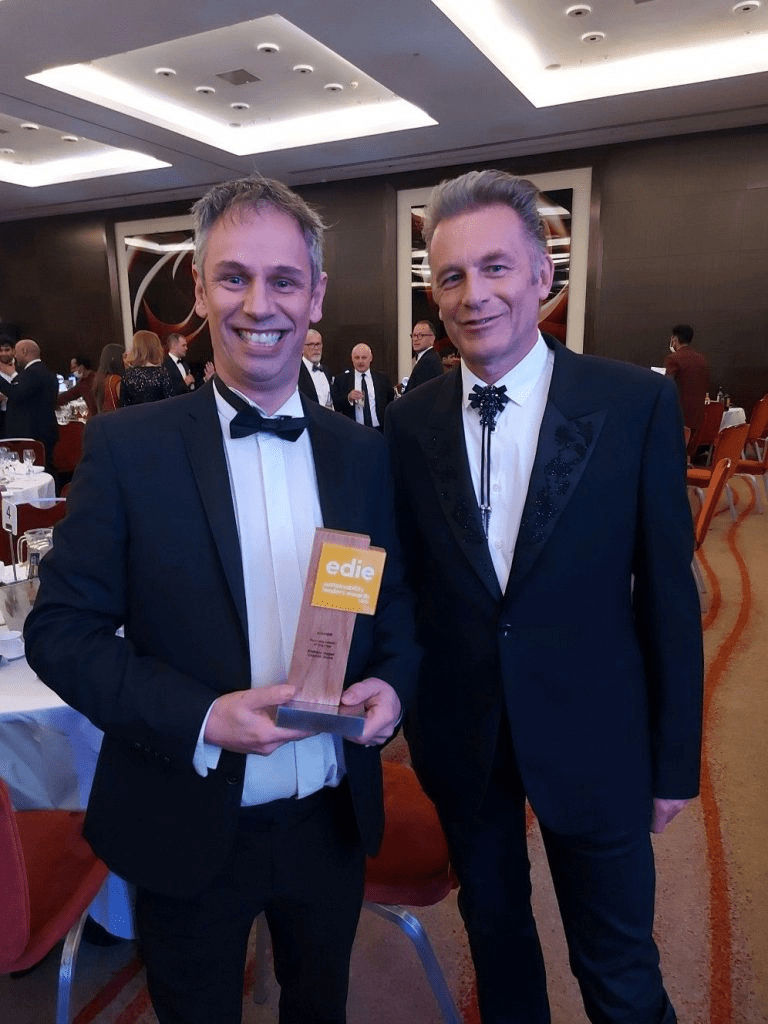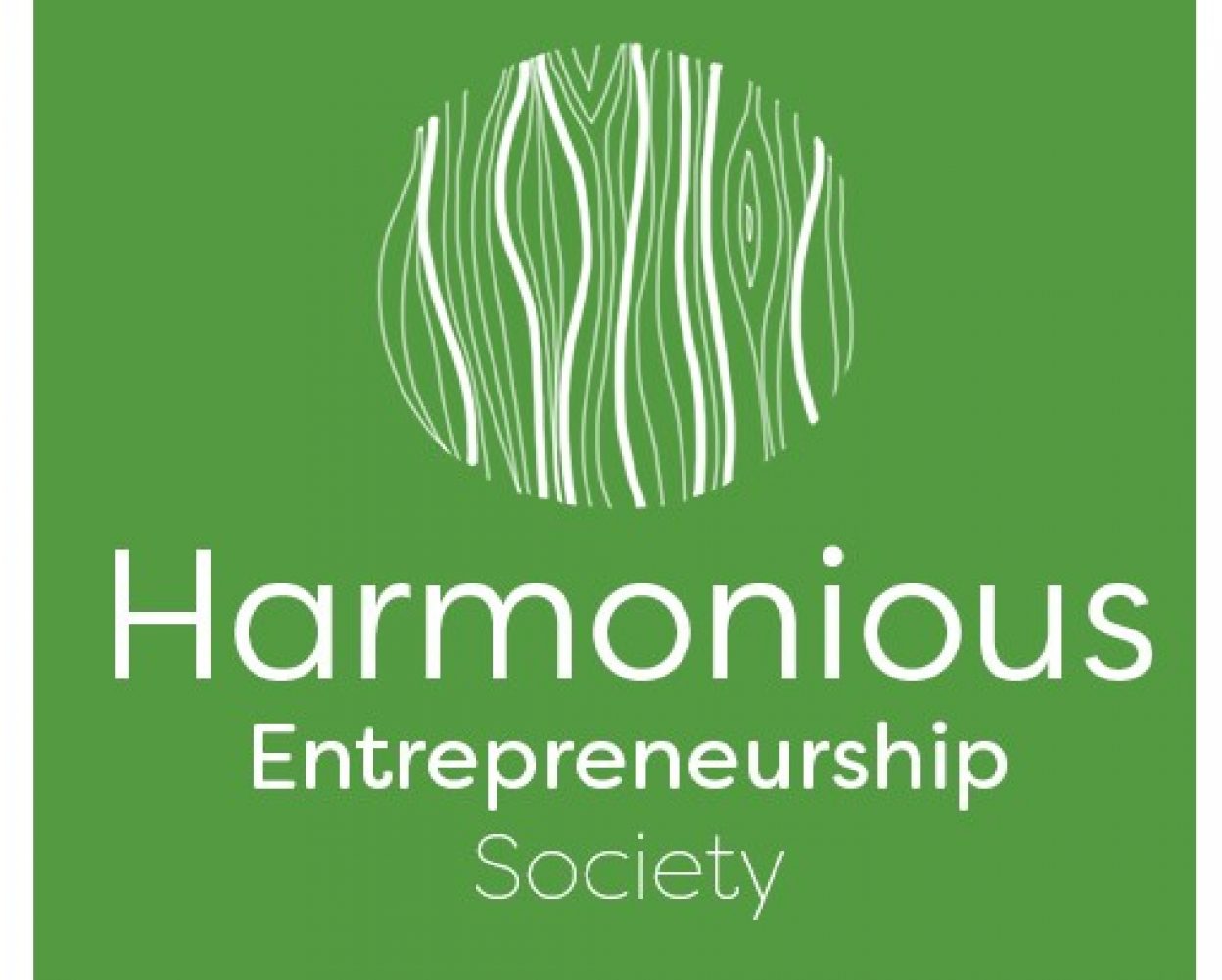
We are a small company with a turnover of £3 million, but we are making an impact way beyond our size. The manufacturing industry is beginning to wake up and take notice of the climate and ecological emergency around us, and we are a proven example of how to successfully make a difference and become a stronger business as a result” (Richard Hagen).
In 2021, Crystal Doors of Rochdale received The Queen’s Award for Enterprise for Sustainable Development. Located in Greater Manchester, Rochdale is an old cotton milling town that in the 19th century was the birthplace of the modern cooperative movement (the Rochdale Pioneers), while Crystal Doors is a 29-year-old business that produces bespoke vinyl-wrapped doors and accessories. Clearly, vinyl is anything but sustainable, taking up to 1000 years to decompose, so how can the business receive such an award?
The answer is simple. The award is not for what it does, but for the way that it does it. Their CEO Richard Hagen, a food manufacturing graduate from Manchester University, is passionate about sustainability and ever since the firm’s first carbon footprint assessment in 2015, he and his team have been working to ensure that every part of the business is sustainable. This has resulted in the installation of smart autonomous machinery, the application of energy-efficient technology, a state-of-the-art dust extractor, 640 solar panels, and 2 electric vehicles plus a 980kw biomass boiler fuelled by the firm’s own waste materials. Additionally, Richard believes that it is important to select the right partners and join the right networks. As he acknowledged when he received the Queen’s Award. “Officially receiving our Queen’s Award in front of the whole team and some of those who have supported us on our journey was so important because none of it would have been possible without their efforts…I feel very proud to have such a great network around me”.

Having been awarded the title of U.K. Business Leader of the Year in 2022, Richard recognizes the importance of his 34-person team, all of whom live within 3 miles of the factory. Apart from receiving training, employees that have been with the company for 12 months can apply to a well-being fund for a one-off annual payment of up to £200 for their personal development and well-being. All the company’s own training programmes are open not just to the employees but to people from outside of the business, and with the support of his team, Richard is now sharing his knowledge and passion for sustainable business with others, in the process motivating them to join him and Crystal Doors in their quest to save the planet and its people.
Richard and Crystal Doors are very much part of the Rochdale business community. The company is a member of the City of Trees club intended to revitalise Greater Manchester by planting a tree for every person who lives in the Manchester City region. Additionally, it donates at least 5 percent of its profits each year to local and national charities, community groups, and initiatives in and around Rochdale, while Richard is a member of Rochdale Ambassadors, a private-public sector group that aims to make Rochdale “one of the most important players in Greater Manchester and a key part of the growth of the region”. It aims to do so by bringing the people and businesses of Rochdale together so that they can achieve more for the town than they would individually.
We pride ourselves on our role as a good employer, community stakeholder and custodian of the natural environment in Rochdale.
According to Richard being sustainable pays for itself and “in 2022, it costs more for businesses not to be involved in sustainability”. So for him caring for the planet and its people makes sound business sense. Whatever, Crystal Doors contributes to SDGs 8 (Decent Work and Economic Growth), 9 (Industry, Innovation, and Infrastructure), 11 (Sustainable Cities and Communities), 12 (Responsible Consumption and Production), 13 (Climate Action), and 17 (Partnerships for the Goals). It is very much a sustainable business. However, can a venture that uses vinyl be regarded as a Harmonious Enterprise? Profit, planet, and people might be in harmony, as might the process, but what about the product? Should Richard and his team be searching for an alternative to vinyl that does not harm the environment?
© Harmonious-Entrepreneurship.org / Harmonious Entrepreneurship Ltd. (2020-2023). Unauthorized use and/or duplication of this material without express and written permission from the author(s) noted is strictly prohibited. Excerpts and links may be used, provided that full and clear credit is given to Harmonious-Entrepreneurship.org/ Harmonious Entrepreneurship Ltd with appropriate and specific direction to the original content.

